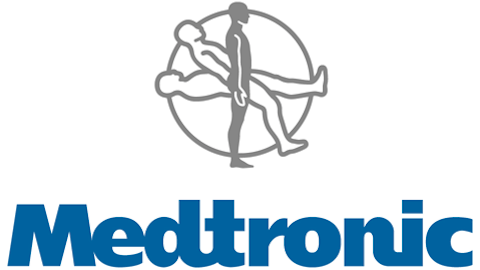
Health is priceless; health care isn’t.
As a medical devices company, Medtronic, Inc. (NYSE:MDT) benefits from many of the unique elements of the industry that make it attractive for dividend investors. We all know it’s impossible to put a price on one’s health and well-being. Because of that, the health care sector at large is much less sensitive downturns in consumer spending. This dynamic, along with the aging and increasingly unhealthy society that we’re all well aware of, is a key reason health care spending will continue to grow.
But while these big picture trends might be driving the overall industry, investors looking at specific health care dividend stocks need to dig a layer deeper to understand the company-specific issues at work. After all, dividends aren’t a guarantee, and if the going gets tough enough, even a “stable” health care stock could cut — or eliminate — its dividend. With that being said, let’s check on where Medtronic, Inc. (NYSE:MDT)’s dividend has been, and try to determine where it’s going.
Payout ratios
A quick-and-dirty technique for checking a dividend’s sustainability is taking a look at something called the payout ratio. Typically this is expressed as a percentage, looking at a company’s dividend per share relative to its net income per share. That’s a decent start, but I prefer to use a slightly different measurement that replaces net income, an accounting measurement, with something more tangible — cold hard cash. The chart below shows how much of Medtronic, Inc. (NYSE:MDT)’s free cash flow has been eaten up by its dividend payments over the past two years. The lower the better, suggesting more capacity for future dividend hikes.

Not all dividends are created equal. At first glance a high dividend yield may look nice, but all too often it means a problem is lurking around the corner for a business. Looking at Medtronic’s 2.3% dividend yield in isolation only tells half of the story, which is why investors need to have an understanding of how the market perceives a company prior to buying a stock. We can do this by comparing a few financial multiples, like price to earnings, to its peers in the industry.

Up to this point, we’ve looked at Medtronic, Inc. (NYSE:MDT)’s dividend in the past, and we’ve also seen how its stock is being perceived by the market today. However, the most important factor to consider when understanding a dividend’s future is where the company’s cash flow is heading. It’s hard to generate more cash without growing sales, so let’s take a look at what industry analysts are expecting for Medtronic’s revenue growth relative to peers this year.

If you’re looking for a reliable dividend-paying stock, Medtronic, Inc. (NYSE:MDT) is certainly worthy of some consideration. None of the metrics above suggest investors should steer clear of this stock, which is one of the first names that comes to mind when it comes to medical devices. The company’s leading position in the areas of cardiovascular and spine position it well for future growth in the U.S., and its emerging markets division has been growing at strong double-digit clip. Better yet, management is committed to returning half of free cash flow to shareholders in the form of dividends and share repurchases in the future. Bottom line, this dividend is rock solid.
The article Does Medtronic Have a Rock-Solid Dividend? originally appeared on Fool.com and is written by Brenton Flynn.
Brenton Flynn has no position in any stocks mentioned. The Motley Fool owns shares of Medtronic.
Copyright © 1995 – 2013 The Motley Fool, LLC. All rights reserved. The Motley Fool has a disclosure policy.




